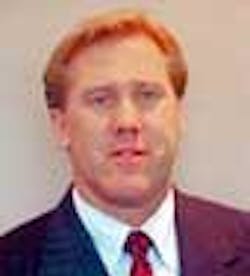GulfWest focuses on West Texas, Gulf Coast core areas for growth
Houston independent GulfWest Energy Inc.'s core areas of operations—in West Texas and on the Gulf Coast of Texas and Louisiana—will be seedbeds for the company's future growth. Although the company also holds assets in Colorado, Oklahoma, and Mississippi, it is still evaluating whether to keep and develop these assets or sell them, Thomas R. Kaetzer, president and CEO, told OGJ. "Growing in Oklahoma and Colorado could make sense if we make the right acquisition," he said.
Gulf Coast focus
GulfWest began acquiring properties in 1993, explained Jim C. Bigham, executive vice-president. The company began with an initial public offering and used the proceeds to purchase properties in East Texas, which it since has sold, Bigham said. GulfWest then began spreading west.
"Texas is a good place for independents," Kaetzer stated. "What we typically chase is not deep, expensive wells. It's lower-cost wells, and it's lower production, but it's not concentration—we have multiple wells, so if one well goes off, it doesn't make or break us," he said, adding, "Texas is a good fit for us—that's why we focus in this area."
Being a small operator, Kaetzer said that it is best to be located close to one's assets, which makes operating in Colorado a challenge. "As an independent, you've got to have daily control of your production and expenses because your lifting costs are typically a little higher. Being closer to your assets greatly assists in achieving that asset control," he said.
GulfWest prefers to own and operate its properties; the company's average working interest in its assets is 93%, Kaetzer noted.
Future growth
GulfWest will increase its reserves—which are currently equally weighted between oil and gas—through both acquisitions and through the drillbit, Kaetzer said. "We're out looking for acquisitions, but I don't think we need an acquisition to really obtain some significant growth," he stated. "In the past, we really felt like we needed a larger asset base and had to make acquisitions. Now we really need to manage our assets—keep some, maybe sell a few—and just drill some wells and do some workovers on what we own."
Regarding acquisitions, Kaetzer explained that he senses there are some oil and gas companies out there just looking to get out of the industry, adding, "We're talking with a couple of small companies now about opportunities like that; giving them an exit by rolling into GulfWest."
Kaetzer views GulfWest as a consolidator. "(Companies) talk to us about selling or rolling into them—you can't ever throw out that idea if you're considering to maximize your shareholders' value, he said. "Our goal is to grow the company, and so we're really not seeking to be bought out at all—that's not something we spend our days doing. We're spending time trying to drill wells, generate opportunities, and find acquisitions. But if the right merger came in, we'd have to look at it."
Over the last few years, Kaetzer has observed that the number of independents in the $200-800 million market-capitalization range has dwindled. Kaetzer sees GulfWest, which currently holds $50 million in assets, expanding to about $250 million in the next 2-3 years. "In order for GulfWest to realize this kind of growth, we will have to achieve our debt-equity financings, and this will allow GulfWest to continue the drilling and development of its current assets, as well as acquire additional oil and gas properties," he said.
"Our goal is to grow the company, and so we're really not seeking to be bought out at all—that's not something we spend our days doing. We're spending time trying to drill wells, generate opportunities, and find acquisitions. But if the right merger came in, we'd have to look at it."

